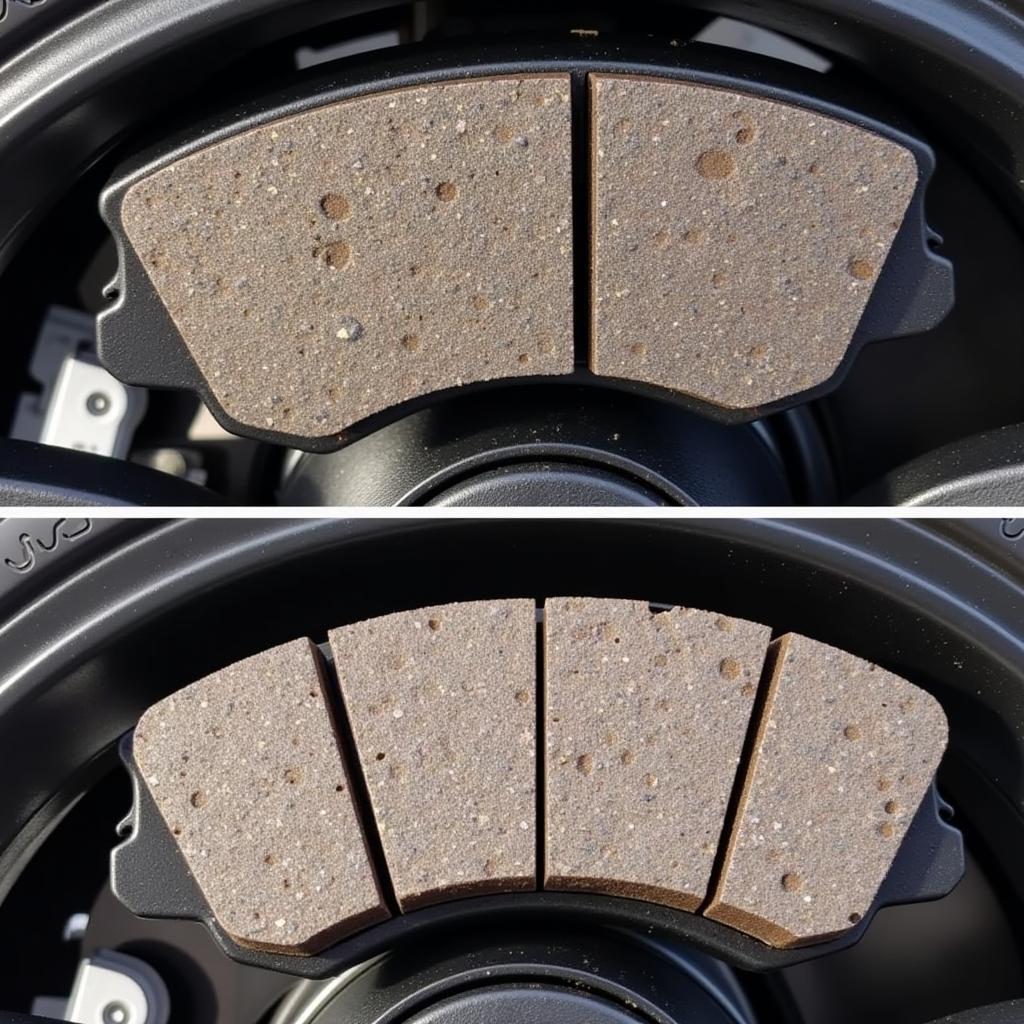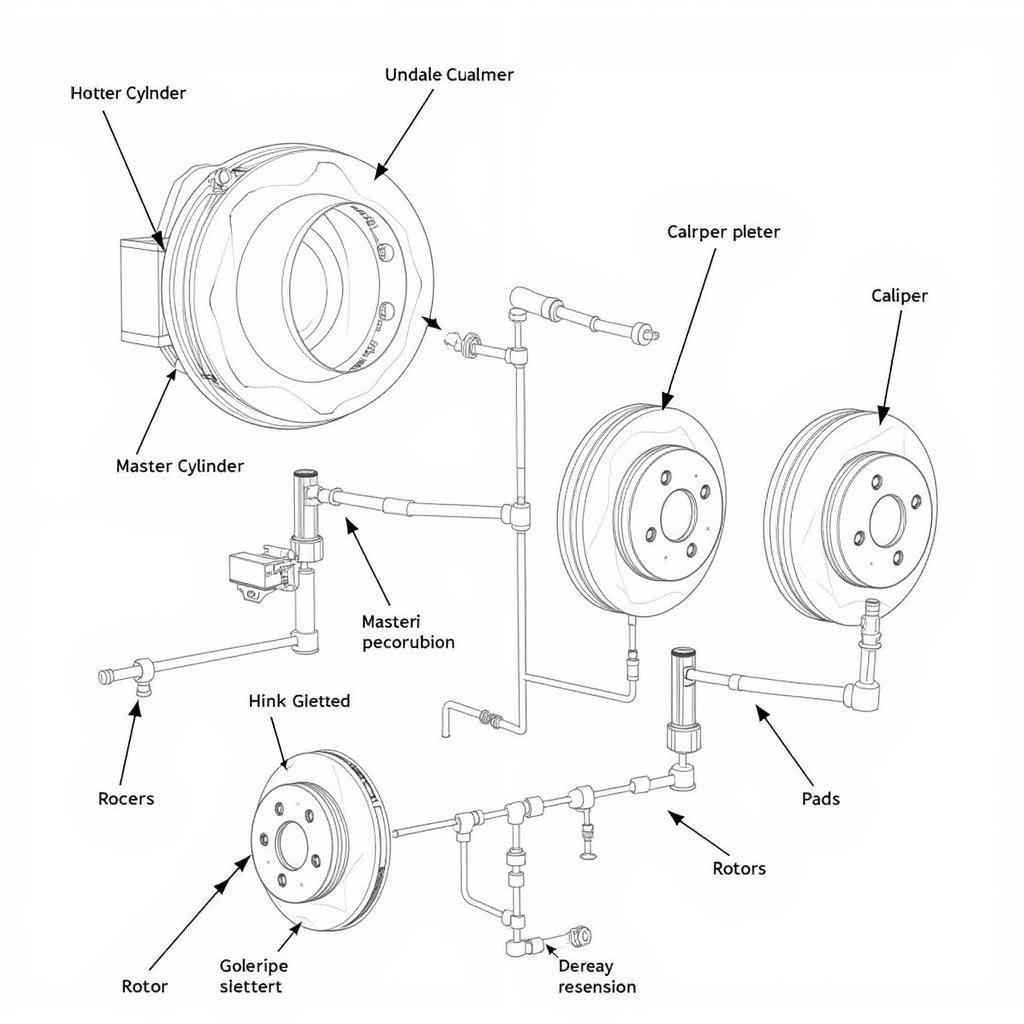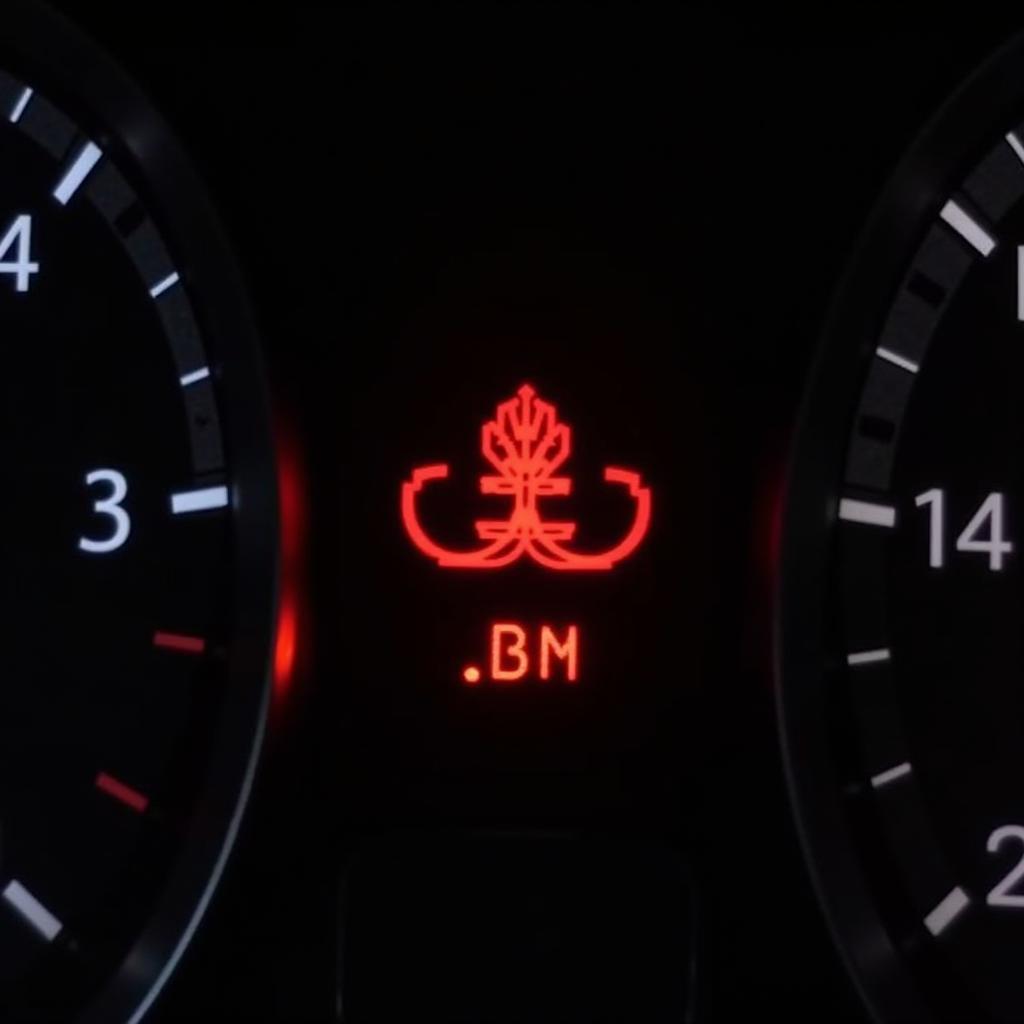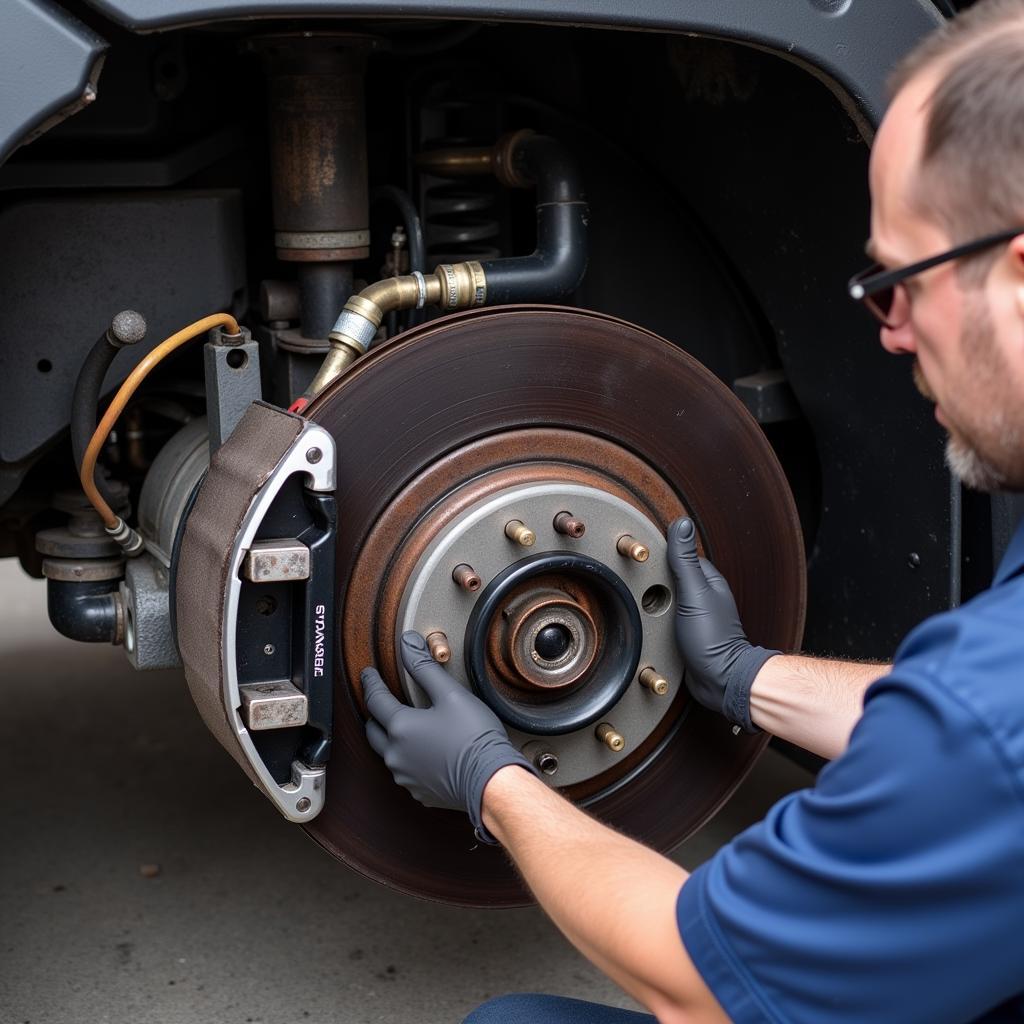The dreaded low brake fluid warning light illuminates your 2013 Ford Focus dashboard. This is a serious issue demanding immediate attention. Ignoring it can lead to costly repairs and dangerous driving conditions. This guide will delve into the causes, diagnosis, and solutions for a low brake fluid warning in your 2013 Ford Focus.
You might be tempted to simply top off the brake fluid and be on your way. However, a low brake fluid warning often signals a deeper problem, one that requires more than a quick fix. This guide provides you with the knowledge and steps to address the issue correctly and safely. Check out our resources for further information on the brake system warning light Ford Focus.
Understanding Your Brake System
Your Ford Focus’s braking system is a complex network of components working in harmony to slow down and stop your vehicle. It’s a hydraulic system, meaning it relies on brake fluid to transmit force from the brake pedal to the brake calipers. This fluid is incompressible, ensuring that the force applied to your pedal is directly translated to stopping power.
Why is Brake Fluid Important?
Brake fluid plays a crucial role in maintaining consistent braking pressure and preventing brake failure. It also lubricates the system’s moving parts and protects them from corrosion. Without sufficient brake fluid, your brakes will become less effective and potentially fail altogether.
Common Causes of Low Brake Fluid in a 2013 Ford Focus
Several factors can contribute to low brake fluid, ranging from simple wear and tear to more serious problems:
- Brake Pad Wear: As your brake pads wear down, the brake calipers need to extend further to engage the rotors. This requires more brake fluid, and eventually, the level can drop enough to trigger the warning light.
- Brake Fluid Leaks: Leaks can occur in various parts of the brake system, such as the brake lines, calipers, master cylinder, or wheel cylinders. These leaks can be slow and subtle, gradually depleting the fluid level over time.
- Worn Brake Components: Other brake components, like the master cylinder or wheel cylinders, can wear out and internally leak, leading to low brake fluid.
Diagnosing the Problem
Before taking any action, it’s important to correctly diagnose the cause of the low brake fluid warning. Here’s a step-by-step guide:
- Check the Fluid Level: Locate the brake fluid reservoir, usually a translucent plastic container in the engine bay. Check the fluid level against the minimum and maximum markings.
- Inspect for Leaks: Carefully examine the brake lines, calipers, and other components for any signs of leakage. Look for wet spots, stains, or drips.
- Check Brake Pad Thickness: Inspect the thickness of your brake pads. If they’re excessively worn, they’re likely the culprit for the low fluid level.
How to Identify Brake Fluid Leaks
Brake fluid is typically clear to amber in color and has a slightly oily texture. Look for these signs around brake components:
- Wet or damp spots
- Stains on the ground beneath the car
- A noticeable decrease in brake fluid level over time
Addressing the Low Brake Fluid Warning
The solution to a low brake fluid warning depends on the underlying cause. If you discover a leak, it’s crucial to have it repaired by a qualified mechanic immediately. Driving with a brake fluid leak is extremely dangerous. If worn brake pads are the cause, they should be replaced as soon as possible.
 Worn Brake Pads on a 2013 Ford Focus
Worn Brake Pads on a 2013 Ford Focus
Never simply top off the fluid without investigating the cause. It could mask a more serious problem and lead to brake failure. Find helpful information related to your specific model here: Ford Focus 2013 brake fluid warning light.
Preventative Maintenance: Keeping Your Brakes in Top Shape
Regular brake system maintenance is crucial for safety and performance. Follow these tips to prevent future low brake fluid warnings:
- Regular Brake Inspections: Have your brakes inspected by a qualified mechanic at least once a year or as recommended in your owner’s manual.
- Brake Fluid Flushes: Brake fluid should be flushed and replaced according to the manufacturer’s recommended intervals. This helps maintain its performance and prevents corrosion.
- Monitor Brake Pad Thickness: Keep an eye on your brake pad thickness. If they’re nearing the wear limit, have them replaced promptly.
“Regular maintenance is the key to preventing brake problems. Don’t wait for a warning light to tell you something’s wrong,” advises John Davis, a certified automotive technician with over 20 years of experience. He emphasizes the importance of proactive maintenance in ensuring a safe and reliable braking system.
Conclusion
A 2013 Ford Focus low brake fluid warning is a serious issue that should never be ignored. By understanding the causes, diagnosis, and solutions outlined in this guide, you can take the necessary steps to ensure your safety and the longevity of your vehicle. Don’t hesitate to consult a professional mechanic if you have any concerns or are unsure about performing any of the diagnostic steps yourself.
 2013 Ford Focus Brake System Diagram
2013 Ford Focus Brake System Diagram
FAQ
- What does a low brake fluid warning light mean? It indicates that the brake fluid level in your reservoir is below the minimum safe level.
- Is it safe to drive with a low brake fluid warning light on? No, driving with low brake fluid can significantly reduce your braking power and lead to brake failure.
- How often should I check my brake fluid level? It’s a good practice to check your brake fluid level at least once a month.
- What color is brake fluid? Fresh brake fluid is typically clear to amber in color.
- Can I add brake fluid myself? Yes, you can top off the brake fluid, but it’s crucial to identify and address the underlying cause of the low fluid level.
- How much does it cost to fix a brake fluid leak? The cost depends on the location and severity of the leak.
- How often should I have my brake system inspected? At least once a year, or as recommended by your vehicle’s manufacturer.
“Ignoring a low brake fluid warning can lead to serious consequences. Don’t put yourself and others at risk,” adds Maria Sanchez, a seasoned automotive engineer specializing in brake system design. She stresses the importance of addressing brake issues promptly to maintain optimal vehicle safety.


